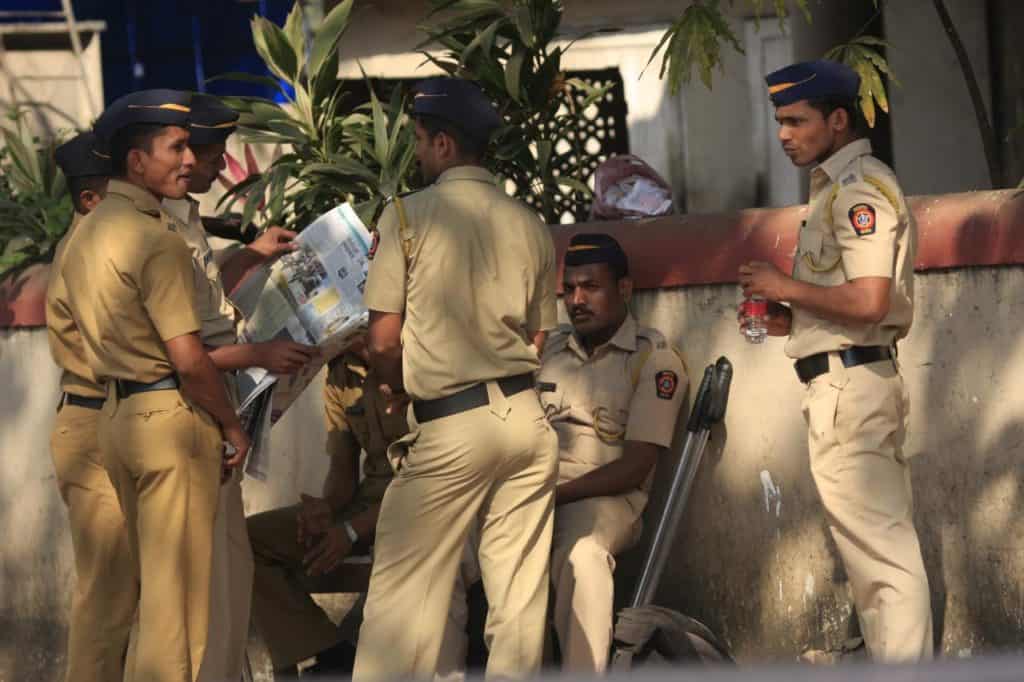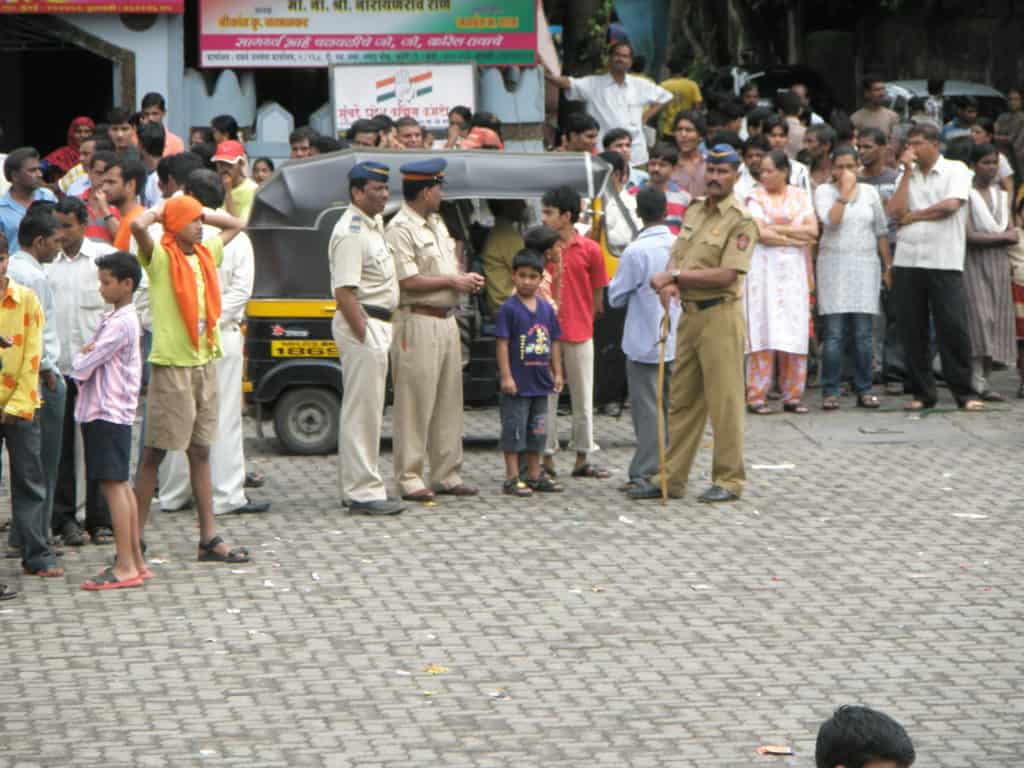By end the of May, Rehana Shaikh, 39, a Naik with Mumbai police, developed a fever. Shaikh had been overseeing bandobast across Mumbai from Dadar’s Naigaon police station. Every day, from the beginning of the nationwide lockdown on March 24, she was allocating duties to 278 policewomen across the city’s emerging hotspots, arterial roads, hospitals, and check nakas.
When COVID-19 symptoms manifested, Shaikh rushed to Metropolis Labs, a private diagnostic centre, for a test. But the result was delayed. “My symptoms were worsening but without a test result, no hospital or a COVID health care centre would admit me,” she says. For five unending days and nights, Shaikh positioned herself in a corner of her 180-sq ft police quarter in Dadar. “I share the apartment with my elderly in-laws and teenage children. My mother-in-law is diabetic and my son has compromised immunity,” she says. So she pushed herself against a wall and didn’t dare remove her mask despite sweating and laborious breathing.
When the result arrived with a conciliatory apology, Shaikh was admitted to Seven Hills hospital, from where, she says, she continued to coordinate the bandobast on WhatsApp.
On June 11, she finally tested negative in two simultaneous tests and was allowed to go home.
Shaikh is an athlete, who has represented India in volleyball and athletics but despite her physical fitness and a sportsperson’s tenacity, she says, she never felt as weak or battered as she did when COVID-19 pushed her to a wall. “My family was exposed to risk and I was terrified.” Shaikh’s family was also eventually tested negative.

Seeking better conditions
For years now, better housing for the police has been demanded. But several hours of police duty on the frontline and a fear of transmitting the virus to family members has emboldened the need.
A senior police inspector can still afford a decent rental apartment in the city, but constables’ low salaries constitutes a paltry Housing Rent Allowance (HRA) that forces them to look for accommodation on the fringes or outside the city.
Earlier this month, a non-profit organisation, Praja Foundation, organised a seminar where Naval Bajaj, Joint Commissioner of Police (Administration) was unequivocal in his demand for better housing for the personnel. 28,000 cops don’t have government accommodation in Mumbai, he said. The police force could be a “sick force that needs to be looked after,” he added. Give them houses near their place of work, Bajaj cautioned, or “we might keep losing men due to other diseases as well.”
It’s not a new demand. In 1977, the central government constituted a National Police Commission and its report highlighted many challenges, including the problem of housing, in the lives of the constabulary: “Securing private accommodation has become increasingly difficult over the years. Payment of house rent allowance operates under very restrictive rules and procedures which do not take a realistic account of the existing high rentals,” the report read. 43 years later, the situation has only gotten worse.
At the Praja seminar, Amin Patel, Congress MLA, fielded questions of reform and implementation as the only representative from the legislature. It wouldn’t be financially possible to accommodate all the cops of the city’s 94 police stations near their workplace, he said, but they could find options outside Mumbai.
Mumbai’s broken real estate market forces everyone to think outside the city. But the long hours of travel from adjoining districts such as Kalyan-Dombivli, Asangaon, Ulhasnagar doesn’t create a healthy force. In demanding better housing, Bajaj was drawing a strong correlation that poor living conditions or exhaustive travel along with long working hours affects cops’ ability to stay fit.
For the 13 years that Ashwini Deore Shewale worked with the Mumbai police, a large chunk of it was spent as a gym trainer. “People would pop in for 15 minutes to an hour whenever they could find time,” she says. Her job was to assist them with fitness but it wasn’t an easy ask. “The police officers worked multiple shifts, didn’t eat well or on time, and got little sleep.” Shewale lived in a 200 sq ft police quarter near her workplace in South Mumbai but many others, she recalls, travelled from 40-50 kms outside the city. “HRA varies from Rs 4,000 to 8,000 depending on the designation but it isn’t sufficient to rent a flat in Mumbai,” she says.
Successive governments have planned police housing projects, but most have been outside the city. One of Mumbai Police’s biggest housing projects is progressing in Panvel, a city 35 kms from Mumbai. 9000 units are planned there to be sold to the constabulary at a subsidised rate. Shaikh has invested in a 650 sq ft flat that cost about Rs 17 lakhs. But in the meantime, she has chosen to stay put in her quarter in Dadar because her children study close by. “I also want to avoid travelling for hours in the local train,” she says.
On the frontline
To date, a total of 11,920 cops in Maharashtra have tested positive, of which 2,217 cases are active. “We’ve lost 58 policemen in Mumbai,” Bajaj said. “From June to mid-July, we lost one policeman a day.”
As the police force struggled with casualties, the state ramped up facilities. Seven Hills Hospital and Gurunanak Hospital are reserved for BMC staff and cops who test positive. Separate COVID care centres have been set up at Marol, in Andheri, and Kalina for those police personnel who are asymptomatic or mild carriers. There was a rush to prevent deaths but it couldn’t change the decades spent working in dissatisfying conditions.

It’s why Bajaj thinks COVID-19 is “only a precipitating factor”. Of those who died, “50+” he said, “(already) had diseases because of physical and mental stress”.
Recently, a group of researchers interviewed 10 police officials to understand how the police should plan enforcement and prevent transmission. A police officer’s account was documented: “Multiple duties and irregular shifts made it difficult to take food on time. I was not able to get nutritious food, and difficult to give proper attention to health. This helplessness adds more anxiety, worry, and stress and hit badly to my immunity level. Long hours duty, seniors’ pressure to perform, no leaves, and frequent change in shifts put us in more trouble to fight against coronavirus infection (sic).”
The life of a constable might be difficult anywhere, but Mumbai’s cramped police quarters or long hours of travel can worsen their efficient functioning. Better housing remains unaffordable so people decide to travel from further and further.
Travelling time helps makes many decisions for people in Mumbai. Sometimes, it also makes it easier to leave the city. Like Shewale, now a Naik, who transferred to Nasik to be close to her family and live a more comfortable life. “Mumbai is very expensive and I know many cops who’d like to be transferred out of the city” she says.